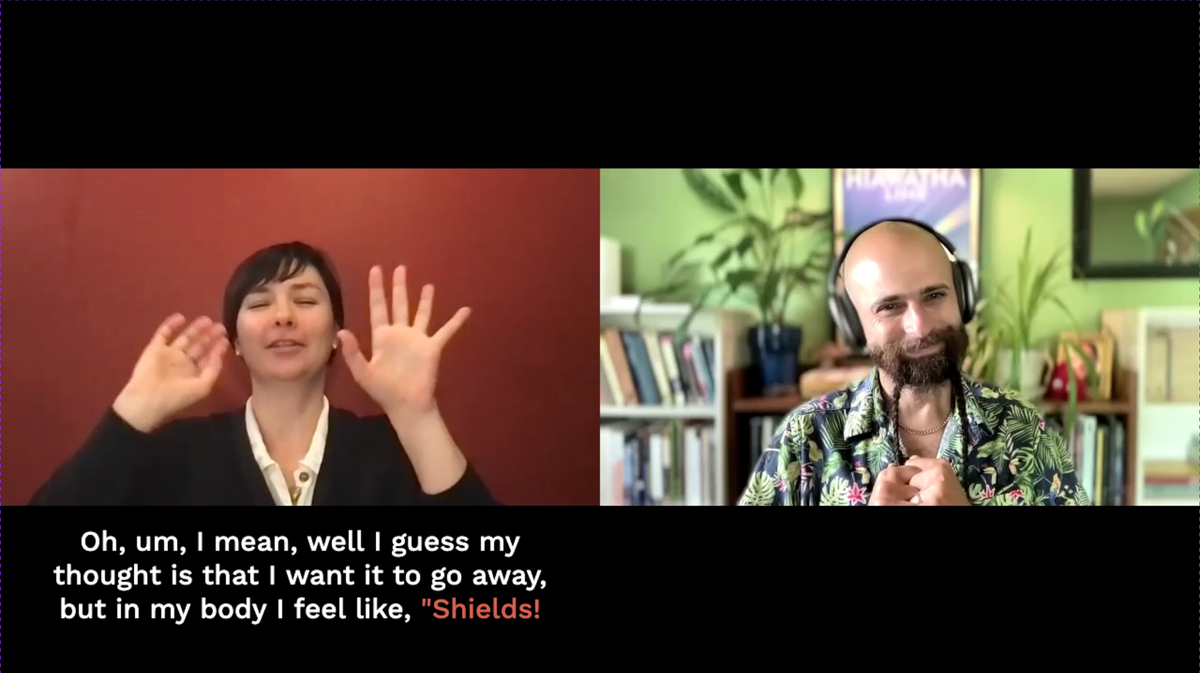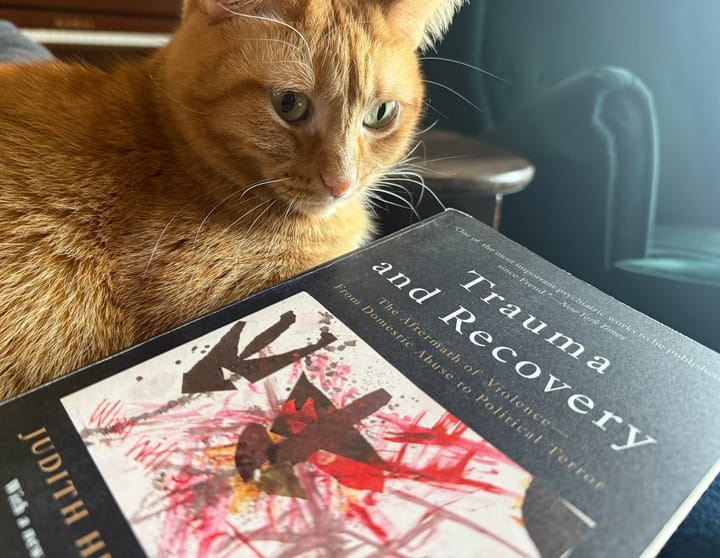Demo session 4: Honoring protective responses
The part of “Michelle” who’s giving her intense nausea clearly has a lot of information for her — but before she can inquire, another part of her intervenes to put “shields up” against the bad feeling. Rather than persisting, we honor its protective wisdom and back off. See what happens when we do.

By this point in our demonstration session, “Michelle” (Alysa Haas) has been focusing on a part of her who’s communicating through an electrical feeling of nausea. As unpleasant as that feeling is, I know it’s got useful information for “Michelle” — so I ask her to pay a little more attention to it. Then another part of Michelle swiftly intervenes to stop her from doing just that:
“MICHELLE”: I really don’t like it. Like, I really don’t want to [pay more attention to it].
ASH: For sure, for sure. What does it feel like not to like it? What is that feeling like in your body?
“MICHELLE: … I guess my thought is that I want it to go away, but in my body I feel like, “Shields! Shields! Shields!” That’s what it feels like.
At a moment like this, many traditional therapeutic modalities would pounce: Aha, there’s pain here, let’s dig deeper! But in Internal Family Systems practice, we do exactly the opposite. Instead of pushing past the part of “Michelle” who’s shielding her from an unpleasant feeling, I trust that protective part of her — and back off immediately. Notice what happens then:
Over the course of her life so far, various parts of “Michelle” have evolved all kinds of strategies to keep her safe — including simply refusing to inquire too deeply into potentially overwhelming feelings. By honoring the wisdom of that protective response, we’re showing every part of her that we will never do anything without their full consent.
In the next part of our session, we’ll earn the consent of another part of “Michelle” — one who really wants to understand what the heck we’re doing here.
⏮️ Previous | All clips | Next ⏭️



